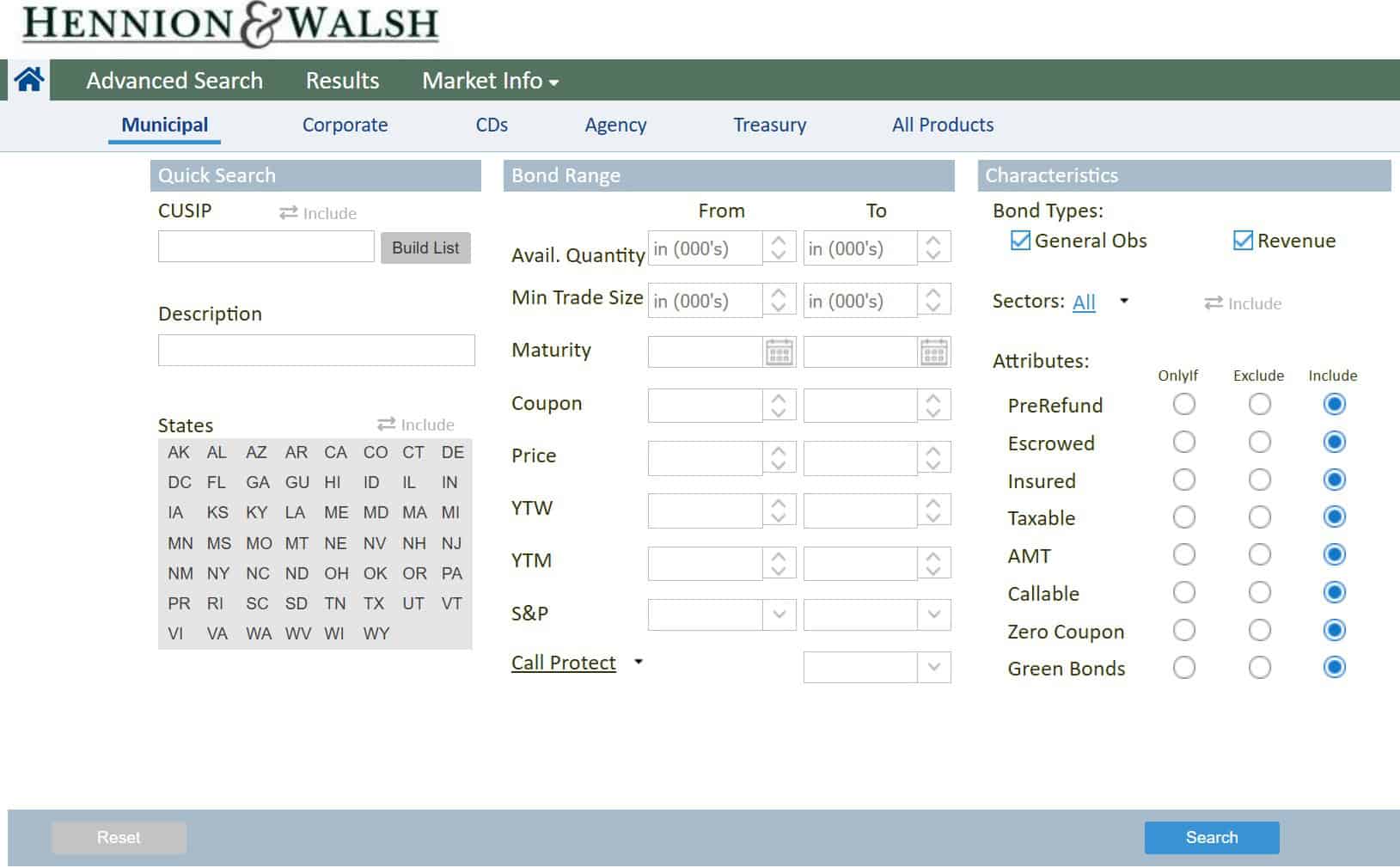
A Guide to Wealth Preservation Strategies
Are you worried about protecting your hard-earned assets and ensuring a secure financial legacy for your heirs? Financial volatility and unexpected life events can jeopardize wealth preservation strategies, making it imperative to plan meticulously.
Consider this challenge. Implementing robust wealth preservation strategies is essential to navigate uncertainties and fortify your financial future, ensuring that your assets flourish across generations.
Understanding Wealth Preservation Strategies
Effective wealth preservation strategies are the cornerstone of maintaining and growing your assets amidst unpredictable economic climates.
These strategies are designed to protect your wealth from taxes and market turbulence. They go beyond simple savings plans, encompassing advanced methodologies such as diversification, risk management, and leveraging tax-efficient vehicles like trusts.
By implementing a comprehensive approach to wealth preservation, you not only safeguard your assets but also position them for continued growth and stability. Key components may include estate planning, asset allocation, and strategic philanthropy, all designed to protect and enhance your legacy for generations to come.
Importance of Safeguarding Assets
Safeguarding your assets is paramount; financial turbulence, market volatility, and unforeseen life events could have significant repercussions on your accumulated wealth.
This protection ensures your financial legacy perseveres across generations. Primarily, effective safeguarding involves leveraging various financial tools (insurance policies, diversified portfolios, and asset protection trusts) and strategies. These tools help in mitigating unexpected risks by implementing measures that secure and protect your investments.
In a rapidly changing economic landscape, employing robust asset protection plans equips you to withstand financial storms, thereby allowing for sustained growth and stability. Ultimately, the goal of safeguarding assets isn’t merely about preserving wealth. It’s about ensuring that your hard-earned resources continue to provide for future generations, fortifying a lasting legacy.
Trusts as Wealth Preservation Tools
Trusts serve as indispensable instruments, a pinnacle of sophisticated estate planning. Whether crafted to facilitate asset growth or protect beneficiaries from potential financial pitfalls, establishing trusts can provide a timeless shield securing your wealth, ensuring it fulfills your future aspirations. With numerous variations, trusts are adaptable to unique familial or financial circumstances, reflecting a testament to your enduring commitment to legacy and stability.
Types of Trusts
Irrevocable trusts offer extensive asset protection, a hallmark of sophisticated estate planning. Once established, assets in irrevocable trusts are typically safeguarded from creditors and estate taxes.
Revocable living trusts provide flexibility and control, often known as “living trusts.” These trusts can be altered or revoked during your lifetime, providing malleable protection.
Charitable trusts can significantly reduce estate taxes while supporting philanthropic goals.
Special needs trusts ensure that beneficiaries with disabilities receive adequate care without jeopardizing their eligibility for public assistance. Thus, these variations empower you to cater to specific needs, ensuring comprehensive and enduring wealth preservation.
Benefits of Trusts
Trusts offer a versatile mechanism for managing and protecting your assets, ensuring long-term financial stability.
- Asset Protection: Trusts safeguard your wealth from creditors and legal claims, providing an impermeable layer of security.
- Tax Efficiency: They can significantly reduce estate and gift taxes, maximizing the wealth retained within your family.
- Control and Flexibility: Trusts allow you to specify exactly how and when your assets are distributed, ensuring alignment with your intentions.
- Privacy: Trusts enable you to keep your estate matters private, avoiding the public disclosure associated with probate.
- Support Beneficiaries: They can provide for financially irresponsible or vulnerable beneficiaries in a structured manner, fostering long-term financial stability.
Utilizing trusts ensures your wealth is managed according to your wishes, thus empowering your legacy. By mitigating potential risks and liabilities, trusts contribute substantially to your wealth preservation strategies. Through strategic implementation of trusts, you can confidently secure a prosperous future for generations to come.
Estate Planning Essentials
Estate planning is the cornerstone of safeguarding your legacy, ensuring that your wealth is transitioned seamlessly to your heirs without unnecessary legal, tax, or administrative hurdles. A robust estate plan includes wills, trusts, power of attorney, and advance directives, meticulously crafted to uphold your wishes and protect your assets.
Implementing a thoughtful estate plan secures your family’s financial future and exemplifies your foresight and commitment.
Creating a Will
Crafting a will is a fundamental step in wealth preservation strategies. It ensures your assets are distributed according to your wishes, providing clarity and peace of mind.
A comprehensive will outlines your intentions clearly. It designates beneficiaries and defines asset distribution.
This document is essential to prevent legal contests among heirs. The will serves as a roadmap for your estate, guiding executors in fulfilling your directives.
Effective will creation minimizes conflicts, reduces estate taxes, and ensures a seamless transfer of wealth. For utmost efficacy, enlist the expertise of legal professionals to draft, review, and update your will regularly. This proactive approach confirms your legacy’s endurance and reflects your dedicated stewardship.
Role of an Executor
The role of an executor is vital in ensuring your estate plan’s successful implementation.
Executors carry significant responsibilities and have a fiduciary duty to act prudently.
They must navigate complex tasks like paying debts, distributing assets, and managing ongoing financial responsibilities.
Choosing the right executor is crucial for the smooth execution of your will. Opt for a person or institution with exceptional organizational skills, financial acumen, and the capability to adhere to legal requirements. Such diligence guarantees your estate is administered correctly, preserving your legacy.
Diversifying Investments for Safety
Diversifying investments is paramount, a beacon of sophisticated financial prudence that offers dual benefits. Firstly, it mitigates risks by spreading assets across various sectors and balancing potential downturns. Secondly, diversification seizes opportunities inherent in a range of markets, enhancing the robustness of your portfolio and assuring long-term wealth preservation for future generations.
Asset Allocation
Asset allocation is a pivotal tenet of wealth preservation strategies, vital to upholding financial resilience over time.
By carefully distributing assets, you can help mitigate risks associated with market volatility.
Strategically diversifying your investments across different asset classes, such as equities, bonds, real estate, and commodities, can help provide for a balanced investment portfolio.
A well-designed allocation strategy is designed with the goal of optimizing returns while minimizing risks, providing a degree of defense against market fluctuations. As you review your asset allocation, consider factors such as your time horizon, risk tolerance, and financial goals.
Risk Management
Effective risk management is indispensable in preserving wealth, and ensuring your assets are protected against unforeseen events.
- Insurance: Shield against potential losses from fires, theft, or natural disasters.
- Legal Structures: Utilize trusts and limited liability entities to mitigate personal liability.
- Diversification: Spread investments across various asset classes to reduce exposure to market volatility.
- Regular Reviews: Periodically assess and adjust your risk management strategies to stay aligned with evolving financial landscapes.
- Emergency Fund: Maintain liquid assets to cover unexpected expenses without disrupting long-term investments.
Proactively managing risks can prevent significant setbacks and safeguard your assets. Implementing robust risk management strategies demonstrates prudence and foresight, ensuring asset longevity. By mitigating potential pitfalls, you create a resilient foundation for future financial stability and growth.
Tax-Efficient Strategies
Tax-efficient strategies are instrumental in preserving wealth across generations and enhancing your family’s financial and generational well-being.
By implementing these strategies, you optimize your investment returns (and) minimize tax liabilities without compromising your financial goals, thus capitalizing on opportunities for sustained growth and tax-efficient wealth accumulation.
Terms like “tax efficient” and “tax evasion” differ significantly in legality and ethical implications.
Utilizing Tax-Advantaged Accounts
Leveraging tax-advantaged accounts can significantly enhance your wealth preservation strategies by offering immediate and long-term tax benefits.
- Individual Retirement Accounts (IRAs): Defer taxes on investment gains until withdrawal, allowing your investments to grow tax-free.
- 401(k) Plans: Contribute pretax income, reducing your taxable income while benefiting from potential employer matching.
- Health Savings Accounts (HSAs): Contribute pretax dollars and grow savings tax-free for qualified medical expenses.
- 529 College Savings Plans: Invest post-tax dollars and withdraw funds tax-free for educational expenses.
These accounts provide critical tax-efficient growth and spending opportunities. Maximizing contributions to such accounts can significantly bolster your investment returns. Incorporating these into your financial plan demonstrates strategic foresight and a commitment to protecting your legacy.
Charitable Giving
Charitable giving not only benefits society but also serves as an effective wealth preservation strategy.
By donating, you provide immediate support to philanthropic causes while simultaneously reducing your taxable income. Strategic charitable contributions can include establishing donor-advised funds or setting up charitable remainder trusts. Both offer substantial tax benefits and can ensure your legacy continues to support meaningful causes.
Additionally, charitable giving can foster a philanthropic spirit in future generations. By engaging your heirs in these charitable activities, you provide lasting lessons in compassion and social responsibility, essential elements for sustaining your family’s values over time.
Ultimately, a well-crafted charitable giving plan can seamlessly integrate into your broader wealth preservation strategies. This approach not only offers significant tax advantages and fulfills personal philanthropic goals, but also fosters a culture of giving that can endure within your family for generations, ensuring your assets are both protected and purposefully utilized.
Insurance for Wealth Preservation
Harnessing the power of insurance policies is a time-honored method to safeguard your assets, protect your family, and ensure the continuation of your legacy.
By leveraging solutions like life insurance, long-term care insurance, and umbrella liability insurance, you can mitigate risks associated with unforeseen events, thus preserving your wealth and ensuring financial security for future generations.
Terms like “asset protection” and “wealth transfer” highlight insurance’s role in the wealth preservation strategy.
Life Insurance Policies
Life insurance policies are a cornerstone of comprehensive wealth preservation strategies, offering unparalleled financial security for your beneficiaries.
By providing a tax-free death benefit to your heirs, these policies ensure their financial stability.
This instrument not only covers immediate expenses like funeral costs but also provides substantial liquidity to pay off debts or estate taxes that might otherwise erode your wealth.
Strategically selected life insurance can also serve as a vehicle to equalize inheritances, fund buy-sell agreements, or contribute to charitable endeavors, ensuring your wealth preservation strategies are thorough and multifaceted. By making life insurance an integral part of your financial planning, you are not just securing assets, but also nurturing a legacy of thoughtful stewardship and enduring prosperity for future generations.
Long-Term Care Insurance
Long-term care insurance is essential for safeguarding your financial legacy and ensuring quality care.
In an era characterized by longer life expectancies, planning for potential long-term care needs becomes paramount. Securing long-term care insurance fortifies your wealth preservation strategies by mitigating the exorbitant costs associated with extended care periods.
Such insurance typically covers various services, including home care, assisted living, and nursing home stays, thus alleviating the financial burden on your family. This proactive measure safeguards your assets and allows for dignified aging.
Furthermore, the strategic incorporation of long-term care insurance into your wealth preservation strategy can significantly reduce the need to liquidate other valuable assets. This planning ensures that your wealth remains intact and is passed down as intended.
Prepare for the future confidently by incorporating long-term care insurance into your comprehensive wealth preservation strategy.
Legal Protections for Assets
Effective legal protections for assets, a cornerstone of comprehensive wealth preservation strategies, ensure your legacy endures. Structuring your wealth through these measures fortifies your assets, shielding them from unforeseen financial threats while ensuring their longevity for future generations.
One critical approach involves the establishment of a “revocable trust”. This legal entity acts as a guardian for your assets, enabling their seamless transfer. By doing so, the complexities of probate are minimized, and the generational wealth is safeguarded from potential claims, thus securing your family’s financial future.
Asset Protection Trusts
Asset protection trusts offer a robust shield against potential claims and creditors, ensuring your assets remain secure for future generations.
Utilizing asset protection trusts as a strategic wealth preservation measure can provide unparalleled security, ensuring that your hard-earned wealth is safeguarded from unforeseen litigious threats. These specially designed trusts can hold a range of assets, from real estate and investments to business interests and personal property, insulating them against claims and preserving your financial legacy.
Furthermore, asset protection trusts are unique in their ability to provide both immediate and long-term security for your assets. By transferring ownership of your valuable assets into the trust, you can effectively reduce exposure to potential hazards while enabling beneficiaries to access the wealth according to the terms you establish.
For those committed to ensuring their wealth endures through generations, incorporating asset protection trusts within your wealth preservation strategy is a profound step. The intricacies and benefits of these trusts underscore their importance in mitigating risks and fortifying your financial future, providing not only peace of mind but also the assurance that your legacy will remain resilient and intact through any financial adversity.
Legal Structures
Legal structures play a pivotal role in preserving wealth.
Establishing the right legal framework can shield your assets from various threats. One such structure is the Family Limited Partnership (FLP), which allows you to maintain control while safeguarding assets from creditors. Moreover, it can also be an effective means of reducing estate taxes through strategic gifting.
Another option is forming a Limited Liability Company (LLC).
An LLC offers flexible management options and combines the benefits of corporate protection with tax efficiencies. This structure ensures that your personal assets remain protected.
Additionally, consider setting up a Domestic Asset Protection Trust (DAPT). These trusts are designed to offer robust protection against lawsuits and creditors, while still allowing you to retain some control over the assets. By strategically utilizing these legal instruments, you can confidently ensure your wealth is protected for future generations.
Regular Financial Reviews
Regular financial reviews are crucial for wealth preservation strategies.
They provide an invaluable opportunity to evaluate your current financial standing, assess the performance of investments, and adjust strategies to reflect changing market conditions. Conducting thorough reviews can help identify potential risks and opportunities, ensuring that your wealth preservation plan remains resilient and effective.
Consistently scheduled, these reviews act as a safeguard against financial pitfalls. By proactively addressing emerging trends and legal changes, you can optimize asset allocation and minimize capital erosion, thus reinforcing the longevity of your wealth for future generations.
Moreover, enlisting the expertise of financial advisors during these reviews can enhance decision-making. Their seasoned perspectives can uncover insights and strategies that might otherwise be overlooked, ensuring your financial plan benefits from the best available advice.
Ultimately, regular financial reviews are indispensable in maintaining the robustness of your wealth preservation strategies. They empower you to act with foresight and confidence, dynamically adapting to economic shifts and securing your legacy for those who follow.
Consulting with an Investment Professional
Consulting with an investment professional becomes essential when crafting robust wealth preservation strategies. These professionals possess a nuanced understanding of the financial landscape, offering invaluable insights.
Their expertise greatly enhances your wealth preservation efforts by providing tailored advice. Trained to foresee economic shifts, they help safeguard your assets effectively. Moreover, investment professionals can introduce innovative solutions to optimize your portfolio. Whether it’s diversification or tax-efficient investments, their guidance is pivotal. Relying on an expert ensures your strategies remain aligned with your long-term goals. They help in balancing immediate gains with sustainable growth prospects.
In addition, proactive consultations can reveal hidden opportunities in emerging markets. Staying ahead of trends enables you to leverage growth areas, thus fortifying your financial resilience. Ultimately, the peace of mind that comes from an expert’s touch is invaluable. Their strategic counsel secures your assets and preserves your wealth for future generations.
Educating Future Generations
A robust strategy for wealth preservation includes educating future generations about financial stewardship.
In 2016, Financial Sprinklings, a leading wealth management consultancy, conducted research that found family-run wealth passed onto the next generation often dwindled. To combat this, it is imperative to imbue younger family members with financial knowledge and values.
Thus, it’s not just about preserving assets but preparing tomorrow’s stewards to manage them prudently. Educating future generations ensures they understand the principles behind the preservation strategies and the core values that underpin them.
Teach the intricacies of your portfolio early, sparing no details about how each investment serves the family’s long-term goals. By demystifying the wealth management process, you empower your heirs with the capability and confidence to oversee your legacy effectively.
Such education builds not just financial acumen but a profound respect for the family’s heritage and legacy.
Monitoring Financial Markets
Monitoring financial markets is fundamental to safeguarding your assets for future generations. How do market fluctuations impact your wealth preservation strategies?
In 2016, Financial Sprinklings, a leading consultancy, highlighted that vigilant market monitoring can prevent significant erosion of family wealth. It’s crucial to stay ahead of market trends to protect your investments from volatility.
By consistently tracking financial indicators, you can adjust your portfolio to mitigate risks and capitalize on lucrative opportunities. This proactive approach ensures not only preservation but growth.
Experts advocate for a diversified strategy that includes equities, fixed-income securities, and alternative investments. With this, you can buffer against market downturns while maintaining the potential for steady appreciation.
Visualize your financial vigilance as a shield, one that protects and perpetuates your family’s wealth, securing its place in the annals of enduring legacies.
Disclosures:
This commentary is not a recommendation to buy or sell a specific security. The content is not intended to be legal, tax or financial advice. Please consult a legal, tax or financial professional for information specific to your individual situation. Investing involves risk including possible loss of principal. Past performance is no guarantee of future results. Diversification does not guarantee a profit or protect against loss.




